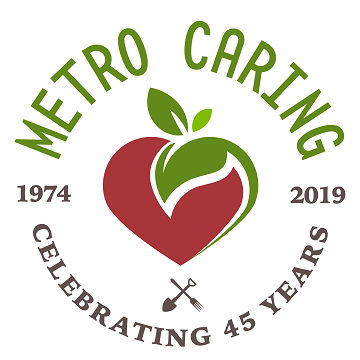
Advent Weekly Practices—Week One: Prayer of Silence
Listen to Advet Week One Sermon
Advent is traditionally a season marked by anticipation and waiting. Silence is one of the ways we can cultivate this practice in our lives.
In Exodus 14, when the Israelites face the Red Sea in front of them and an army of Egyptians behind them, God’s command for His people is not to turn and fight, to build boats, or even to labor in prayer & sacrifice. Instead, God says, “The Lord will fight for you, and you have only to be silent” (verse 14).
It’s a plot twist. It’s counterintuitive. We’ve trained ourselves to think that the only way to make progress in any situation is to use our own strength, our own words, our own passion, our own intellect. And sometimes God, in His kindness by His Spirit, fuels our efforts to make progress. But we often fail to remember that everything was, is, and always will be held in His sovereign hands. Apart from Him, we can do absolutely nothing (John 15:5).
It’s too easy to forget that He is God and we are not. Our culture, our enemy, and our flesh are constantly bombarding us with messages that either distort this truth or distract us from this truth. Lies. Noise. Busyness. Hurry. How can we possibly rewire our hearts?
Sometimes we need to start by stopping. Stop working for a moment. Turn off the noise. Breathe slowly.
Sometimes we, like the Psalmists, need to “Be still, and know that I am God” (Psalm 46:10). Enjoy His presence. Remember His love. Meditate on His kindness. Remember that we are not in control, and that’s a good thing.
Below we’ve provided a handful of practices and questions to help us engage with the “Prayer of Silence” as individuals, families, and communities.
INDIVIDUALS
During the season of Advent, we’ve asked that you aim to stretch your daily prayer life in some way. For some, this may mean setting an alarm twice a day to stop and pray for ten minutes. Others may want to begin each morning praying The Lord’s Prayer (Matt. 6:9–13). Still others may want to commit their entire lunch hour to prayer. Regardless of how you’ve decided to engage in prayer this season, this week our practice is to challenge ourselves to begin and end our prayer times with silence before God. Our suggestion is to set a timer for two minutes before and after your time of prayer and sit in stillness and quiet. Pete Scazzero writes this on practicing silence:All religions practice silence. What makes silence unique for us is that we are silent before the Lord himself. This will be difficult, especially at first. Our internal and external worlds are filled with noise and distractions. For this reason, silence is probably the most challenging and least experienced discipline among Christians today. Give yourself lots of grace here. Studies suggest that the average person or group can only bear fifteen seconds of silence.
Simple enough? It may be more difficult than it seems. Let’s aim to prioritize silence this week together:Questions for individuals to consider or journal about outside the time of silence:
- Where have I been looking for consolation (comfort, satisfaction, progress) outside of the presence of God? Which “temples” do I run to (consumerism, recreation, avoidance, etc.)?
- How could I orient my life, rhythms, habits, and heart to turn toward the presence of God instead of these other temples?
- How can I be intentional during this season of Advent to focus on what matters most?
- How am I longing for God to move in my life? Sit with Him quietly, knowing He knows the longings of your heart.
- Pray through this week’s confession of sin here.
HOUSEHOLDS
Because every household and family has different rhythms, schedules, and capacities, we won’t place any regulations on how to engage with this practice together. However, our encouragement is once again to stretch your home’s current rhythm of prayer during this season. Some may want to begin or end the day with a couple minutes of prayer together. Others may choose to pray at the end of the school day or for a few minutes after dinner. Once again, this week, if possible, invite others into a minute or two of silence as part of your daily prayer time. For those with younger kids, we know this will be a challenging practice! Read Psalm 46:10 beforehand: “Be still, and know that I am God…” and remind yourselves that God is present with you in the room. Remember that the goal here is not to add more to your day, but actually to slow down and make the most of our days with God. Another idea for families is to sing or listen to “Take a Moment” by Will Reagan together, followed by a few moments of quiet to think about who Jesus is.Questions for kids and families to consider:
- What is the season of Advent all about?
- How can we help each other remember this together?
- What’s something you hope God will do in your life?
Questions for housemates or spouses to consider:
- Where does my tend to run for comfort and satisfaction?
- How can we help each other run toward God in this season? What habits can we cultivate?
- What rhythm of prayer can we actively pursue during Advent?
GOSPEL COMMUNITIES
A few encouragements for our Gospel Communities this week: At the beginning of your time together, set a timer for 2 minutes to engage in silence together. Encourage the group to breathe slowly and think about Psalm 46:10: “Be still, and know that I am God.” Afterward, read Luke 2:22–32 together. Feel free to ask some of the questions below. Because we’re stretching our prayer lives individually during this season, make sure to prioritize spending time in prayer together when you gather. If fitting, end your time in a couple minutes of silence as well.Questions for Gospel Communities
- What is compelling about the life of Simeon in Luke 2? What stands out?
- How do you usually feel during and after the holiday season? More present, grounded, and centered? Exhausted, chaotic, frantic, and distracted?
- How can you orient this season around the presence of God instead of other things?
- How can we as a community keep each other accountable to remember what’s most important this season?
- How often do you spend time in silence? Why is it so difficult for us to be silent?
in Blog



